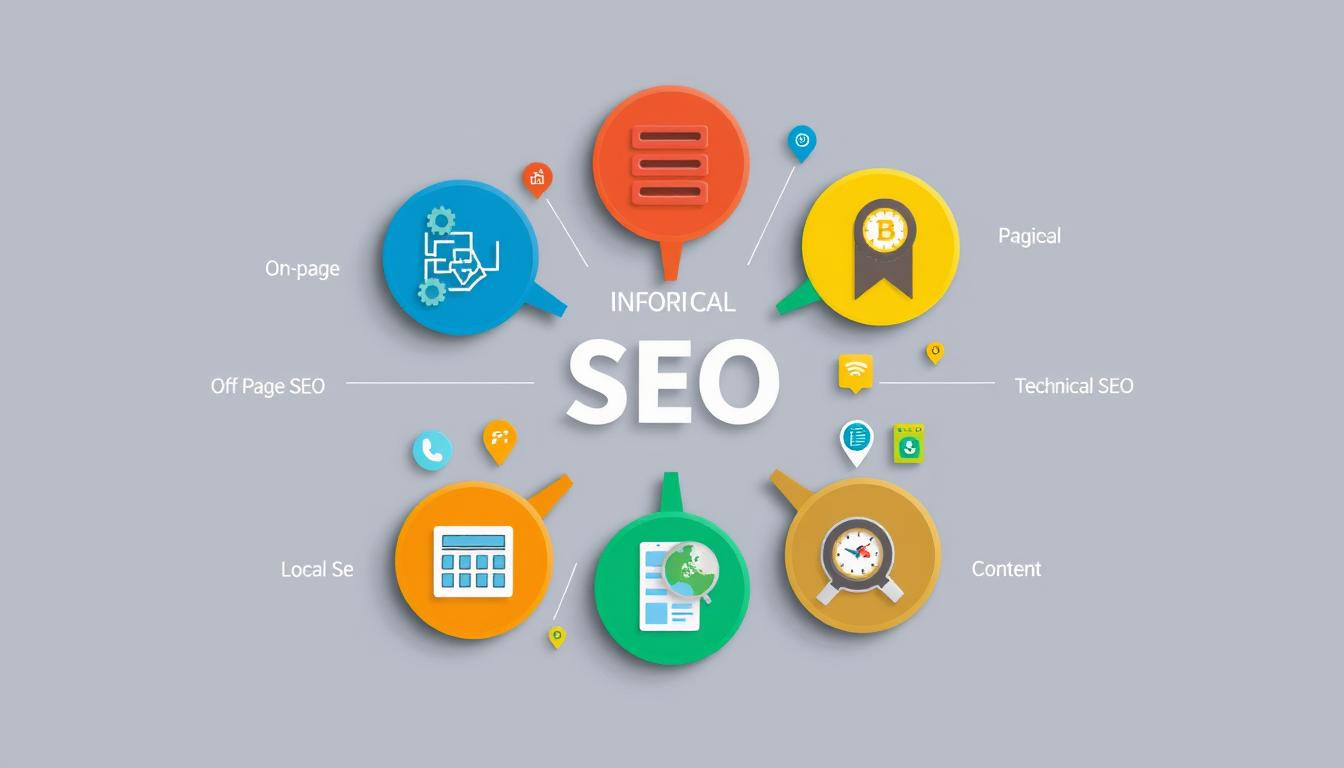In today’s digital landscape, understanding the various SEO types is essential for anyone looking to enhance their online presence. SEO, or Search Engine Optimization, is a powerful tool that can significantly improve search ranking, driving more organic traffic to your website. This guide will introduce you to the importance of SEO, explore different SEO strategies, and provide insights on how to implement them effectively. By grasping these concepts, you’ll be better positioned to navigate the complexities of search engine optimization.
Understanding the Importance of SEO
In today’s digital landscape, understanding the significance of SEO is essential for any online presence. SEO, or Search Engine Optimization, involves various practices aimed at improving a website’s visibility on search engines. Let’s delve deeper into what SEO entails, the benefits of SEO, and how search engines function.
What is SEO?
SEO refers to the process of optimizing web content to achieve higher rankings in search engine results pages (SERPs). Key components of SEO include:
- Content Quality: High-quality, relevant content attracts users and retains their interest.
- User Experience: A seamless user experience boosts engagement and reduces bounce rates.
The Benefits of Effective SEO
Implementing effective SEO strategies yields numerous benefits. Businesses that prioritize SEO experience:
- Improved Organic Traffic: Better rankings lead to more visitors.
- Enhanced User Trust: Websites that rank high are often viewed as more credible.
- Increased Return on Investment (ROI): More traffic can lead to higher sales and conversions.
Statistics reveal that companies engaged in SEO see significantly higher audience engagement compared to those that neglect it.
How Search Engines Work
The mechanics of search engines are integral to understanding SEO. Key processes include:
- Crawling: Search engines use bots to discover and catalog web pages.
- Indexing: After crawling, pages are indexed to be retrieved later during searches.
- Ranking: Algorithms evaluate factors like relevance and authority to determine the position of a page in search results.
This knowledge of search engine mechanics equips businesses and individuals with insights essential for optimizing their online strategies.
| SEO Component | Function | Benefit |
|---|---|---|
| Keywords | Discoverability Improvement | Attract Targeted Traffic |
| Content Quality | User Engagement | Increased Trust and Authority |
| User Experience | Lower Bounce Rates | Higher Conversion Rates |
A Simple Guide on the Different Types of SEO
Understanding the various types of SEO is essential for anyone looking to improve their online presence. This section categorizes SEO into three main types, each serving a unique purpose in enhancing a website’s performance and visibility.
On-Page SEO: Optimizing Your Content
On-page optimization focuses on individual web pages and their ability to attract visitors. Key techniques include:
- Keyword optimization: Incorporating relevant keywords into headings, content, and meta tags.
- Quality content creation: Developing informative and engaging content that addresses audience needs.
- Improving metadata: Ensuring that titles and descriptions are catchy and relevant for better click-through rates.
- User experience: Prioritizing mobile-friendliness and easy navigation boosts engagement.
Engaging visuals and strategic internal linking can further enhance content effectiveness and SEO rankings.
Off-Page SEO: Building Authority and Backlinks
Off-page strategies encompass activities outside of one’s website that raise its authority and enhance its search engine ranking. Some important aspects include:
- Backlinks: Securing quality backlinks from reputable sites improves domain authority.
- Guest blogging: Writing articles for other websites helps in building your brand’s reputation and acquiring links.
- Social media engagement: Active participation on platforms can drive traffic and increase visibility.
- Influencer partnerships: Collaborating with influencers in your industry can amplify outreach.
Statistics demonstrate that websites with strong backlinks tend to rank higher in search results, underscoring the critical role of off-page SEO.
Technical SEO: Enhancing Website Performance
Technical SEO delves into the underlying factors that affect a website’s performance. Important elements include:
- Site speed: Faster load times improve user experience and search rankings.
- Mobile optimization: As mobile usage grows, ensuring websites perform well on smartphones is essential.
- Structured data: Implementing schema markup can enhance how search engines read and display information.
- Security: Using HTTPS is crucial for safeguarding user data and boosting search rankings.
A strong foundation in technical SEO is vital as it supports all other SEO strategies, ultimately providing a seamless user experience.

| Type of SEO | Description | Key Techniques | Benefits |
|---|---|---|---|
| On-Page SEO | Optimizing individual web pages | Keyword use, content quality, metadata improvement | Increased visibility, better user engagement |
| Off-Page SEO | Enhancing authority through external efforts | Building backlinks, guest blogging, social media | Stronger domain authority, higher SERP rankings |
| Technical SEO | Improving the website’s backend performance | Site speed optimization, mobile friendliness, security | Boosted user experience, improved site performance |
Strategies for Implementing Different Types of SEO
Implementing a well-rounded SEO plan requires understanding and balancing the different types of SEO: on-page, off-page, and technical SEO. A practical approach begins with conducting thorough keyword research to identify the terms your audience is searching for, as this is foundational in creating effective SEO techniques. Tools like Google Keyword Planner and SEMrush can help you discover valuable keywords that align with your content goals.
Next, focus on on-page optimization by ensuring each page on your site includes relevant keywords naturally within the content, headers, and meta tags. This process not only improves search ranking but also enhances user experience. Don’t forget to optimize images and ensure your website’s loading speed is up to par, as these factors play a crucial role in both technical SEO and overall site performance.
Off-page SEO is equally important and involves building authority through social media engagement, content marketing, and acquiring quality backlinks from reputable sources. Regularly monitor your performance with analytics tools to track your progress and fine-tune your strategies as necessary. Staying updated with the latest trends and algorithm changes in SEO implementation strategies ensures that your efforts lead to continuous search ranking improvement, keeping your website relevant in today’s dynamic digital landscape.


No Responses